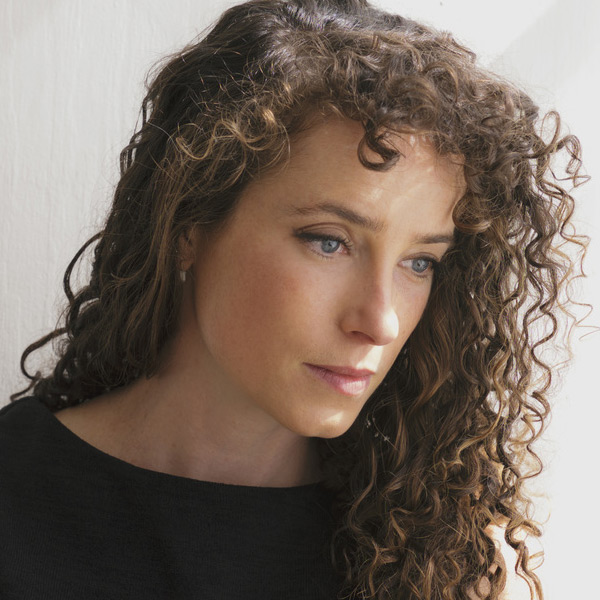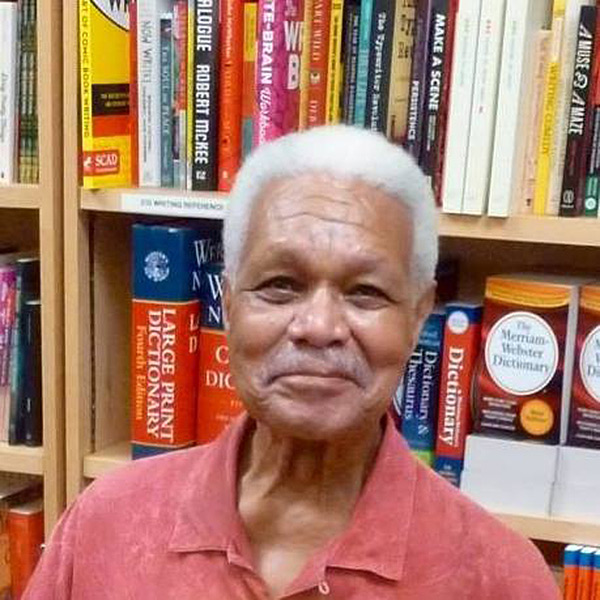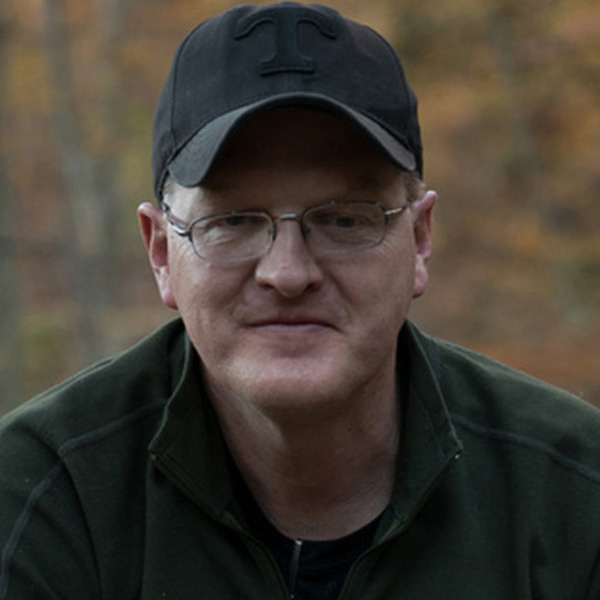BOONE, N.C.—The spring portion of the Hughlene Bostian Frank Visiting Writers Series will spring into action beginning March 2 at Appalachian State University.
Fans of poetry and fiction will have opportunities to experience how the work of three leading writers is defying stereotypes about Appalachia. They will also become reacquainted with a prolific native of the South who guest-taught poetry at Appalachian in 2003 and was appointed California’s poet laureate two years later.
“Appalachian’s Hughlene Bostian Frank Visiting Writers Series prides itself on the range of the writers it dishes up each semester,” said Joseph Bathanti, the series’ director and a professor of creative writing in Appalachian’s Department of English. “We strive for a line-up that showcases writing and language and stories from every segment of the population. It’s only through such a range of often disparate and wildly diverse voices that imagination can be truly explored and come to fruition.”
Susan Weinberg, an associate professor of creative writing in Appalachian’s Department of English, serves as the series’ coordinator. She has helped organize a series format that is similar to that of previous series: Over the course of one day, each writer will read from their work, in addition to offering a craft talk on a subject of interest to writers.
Here is the lineup:
Rose McLarney, an award-winning author of two critically acclaimed collections of poetry, will appear March 2. Much of her work, noted for its ghost stories-like character, illuminates the disappearance of people, places and customs of Appalachia.
McLarney’s “poetry is full of pain, both human and animal, and works, at least to my mind, as a powerful antidote to writers and readers who see the region in terms of stereotypes,” said Mark Powell, who recommended McLarney for the series. Powell, an assistant professor of creative writing in Appalachian’s Department of English, added that “there is a great deal of work that views the Southern Appalachians through either the lens of sepia-tinged nostalgia or through the lens of violent depravity. But we’re far more complex than that, and complexity is what you find in Rose’s poetry.”
Bianca Spriggs of Lexington, Kentucky, will make her series presentations March 30. She is a member of the Affrilachian Poets, with whom she appeared at Appalachian in October 2016 through the Appalachian Heritage Council. “Affrilachia,” a term coined in the early 1990s by Frank X. Walker, the former Kentucky poet laureate, reflects the view that Appalachia is a multi-cultural landscape, not the racially homogenized rural region propagated in popular stereotypes.
Al Young, the former poet laureate of California, will get the nod April 6, presenting the series’ Juanita Tobin Memorial Reading, an annual event named for the late poet of Blowing Rock.
“Al Young is an old and treasured friend of creative writing at Appalachian,” Bathanti said. “He’s read in our Visiting Writers Series a number of times. In fact, he was the English department’s inaugural Rachel Rivers-Coffey Distinguished Professor of Creative Writing. He is a California poet laureate emeritus. He exemplifies what it means to be a man of letters.”
Robert Gipe of Harlan, Kentucky, will appear April 20. He wrote “Trampoline,” an illustrated novel revolving around the trials and tribulations of a high school girl in Kentucky coal country. He also produces “Higher Ground,” which he has described as a series of community musical dramas based on oral histories and grounded in discussion of issues affecting Harlan, described as the heart of Kentucky coal country.
In his review of “Trampoline” for Southern Spaces, critic Carter Sickels writes that Gipe has joined the “many diverse voices of Appalachia (challenging) the idea of a singular Appalachian experience or identity.”
This is important because, as Sickels points out, “damaging stereotypes of Appalachia persist.” These reflect “an essentialist vision of the region – white, rural, poor or working-class mountain people with highly specific cultural traditions that range from quilts and handmade crafts to moonshining and snake handling,” Sickels writes, quoting Dr. Emily Satterwhite, a well-known scholar of Appalachian studies.
Bathanti echoed this sentiment.
“Contemporary Appalachian literature is now an ever-changing, a multi-dimensional landscape of diversity and wild imagination,” he said.
Details about the visiting writers and their presentations
All series events are free and open to the public. Book sales and signing will follow each event.
On March 2, poet Rose McLarney will make her series presentations. From 3:30 to 4:45 p.m., she will offer a craft talk titled “Two by Two: Freshness, Influence, and Some Good Poems on the Same Subject” in Room 201B (Table Rock Room) of the Plemmons Student Union. She will read her poetry from two collections – “Its Day Being Gone” and “The Always Broken Plates of Mountains” – the same day at 7:30 p.m. in the same location.
McLarney, an assistant professor of creative writing at Auburn University, has published two collections of poems: “Its Day Being Gone” (Penguin Books, 2014), which won the National Poetry Series; and “The Always Broken Plates of Mountains” (Four Way Books, 2012). She has secured several fellowships, including one at the McDowell Colony and another at Warren Wilson College, where she completed that school’s MFA program for writers. Last year, McLarney served as the Dartmouth Poet in Residence at The Frost Place and she won the Chaffin Award at Morehead State. In 2012, she received the Fellowship of Southern Writers’ biennial George Garrett New Writing Award for Poetry. She is the co-editor in chief and poetry editor of The Southern Humanities Review.
On March 30, poet Bianca Spriggs will make her series presentations. From 12:30 to 1:45 p.m., she will offer a craft talk titled “Writing Speculative Poetry” in Room 201A (Price Lake Room) of the Plemmons Student Union. She will read her poetry from two collections – “The Galaxy is a Dance Floor” and “Call Her by Her Name” – the same day at 7:30 p.m. in Room 169 (Three Top Mountain) of the Plemmons Student Union.
Spriggs, the recipient of numerous fellowships and awards, is the author of four collections of poetry, most recently “Call Her By Her Name” (Northwestern University Press, 2016) and “The Galaxy Is a Dance Floor” (Argos Books, 2016). She also co-edited “Circe’s Lament: An Anthology of Wild Women” (Accents Publishing, 2016) and “Undead: Ghouls, Ghosts, and More” (Apex Publications, 2017). Her work has also appeared in numerous journals and anthologies. She serves as the literary arts liaison for the Carnegie Center for Literacy and Learning. She is creator and program director for “The SwallowTale Project: Creative Writing for Incarcerated Women.” She is the managing editor for pluck! The Journal of Affrilachian Art & Culture and poetry editor for Apex Magazine.
On April 6, poet Al Young will make his series presentations. From 2 to 3:15 p.m., he will offer a craft talk titled “No Poem, No Home” in Room 169 (Three Top Mountain) of the Plemmons Student Union. He will read from his poetry the same day at 7:30 p.m. in Room 201B (Table Rock Room) of the Plemmons Student Union.
Young will present the 2017 Juanita Tobin Memorial Reading. When Blowing Rock poet Juanita Tobin died in January 2007, at age 91, family and friends gathered to discuss a way to honor her memory as one of North Carolina’s most beloved poets. As a result, the Juanita Tobin Fund was initiated by Paul and Judy Tobin, the poet’s son and daughter-in-law; and Dr. Alice Naylor, retired Appalachian professor, and long-time friend and companion of Tobin. The fund underwrites the annual Juanita Tobin Memorial Reading by a poet of national renown in Appalachian’s Hughlene Bostian Frank Visiting Writers Series.
Young, a native of Ocean Springs, Mississippi, started his professional career as a musician. He sang and played guitar throughout the United States in the late 1950s and early 1960s, then took up writing. He published his first book of poetry, “Dancing,” in 1969; his first novel, “Snakes,” followed in 1970. Since then he has published four additional novels, eight books of poetry and five memoirs, among them the highly acclaimed “Mingus, Mingus, Two Memoirs,” from 1991. Young served as poet laureate of California from 2005 to 2008. Young has taught at numerous universities. In the fall of 2003, for example, he taught a poetry seminar as the first Rachel Rivers-Coffey Distinguished Professor of Creative Writing at Appalachian.
Young’s many honors include Wallace Stegner, Guggenheim, Fulbright and National Endowment for the Arts fellowships. He has received the PEN-Library of Congress Award for Short Fiction, the PEN-USA Award for Non-Fiction, two American Book Awards and two Pushcart Prizes. He has received New York Times Notable Book of the Year citations, an Arts Council Silicon Valley Fellowship, the Stephen Henderson Achievement Award for Poetry, Radio Pacifica’s KPFA Peace Prize, the Glenna Luschei Distinguished Poetry Fellowship and the Richard Wright Award for Excellence in Literature. At its May 2009 commencement, Whittier College conferred on him its highest honor: the Doctor of Humane Letters degree. On October 4, 2011, at the University of North Carolina’s Historic Players Theatre, he received the 2011 Thomas Wolfe Prize.
On April 20, novelist Robert Gipe will make his series presentations. From 2 to 3:15 p.m., he will offer a craft talk titled “Arts & Activism: The Unnatural Nature of Natural Storytellers” in Room 201B (Table Rock Room) of the Plemmons Student Union. He will read from “Trampoline” the same day at 7:30 p.m. in the same location.
After graduating from Wake Forest University, Gipe earned a master’s degree in American studies from the University of Massachusetts at Amherst. He grew up in Kingsport, Tennessee, and has worked as a pickle packer, a forklift driver and educational services director for Appalshop. He lives in Harlan, Kentucky, and works as the director of the Appalachian Program at Southeast Kentucky Community & Technical College, where he is a key producer of “Higher Ground,” a series of community-based musical dramas inspired by oral histories and local issues. His first novel, “Trampoline,” received the 2015 Weatherford Award in fiction from the Appalachian Studies Association and Berea College, an award given to works that “best illuminate the challenges, personalities and unique qualities of the Appalachian South.” Gipe’s second novel, “Weedeater,” is forthcoming.
About the Hughlene Bostian Frank Visiting Writers Series
The Hughlene Bostian Frank Visiting Writers Series, named in honor of alumna Hughlene Bostian Frank ’68, brings distinguished and up-and-coming creative writers to the Appalachian State University campus throughout the year to present lectures and discuss their works. Frank is a 2013 Appalachian Alumni Association Outstanding Service award recipient, past member of Appalachian’s Board of Trustees, current board member of the Appalachian State University Foundation Inc., and generous supporter of Appalachian. Learn more at http://visitingwriters.appstate.edu.
The Spring 2017 Hughlene Bostian Frank Visiting Writers Series is supported by the Appalachian State University Foundation Inc., Appalachian’s Office of Academic Affairs, College of Arts and Sciences, Department of English, Office of Multicultural Student Development, University Bookstore, Belk Library and Information Commons, and the Appalachian Journal. Business sponsors are The Gideon Ridge Inn, The Red Onion Restaurant and The New Public House & Hotel. Community sponsors include John and the late Margie Idol, Paul and Judy Tobin, Alice Naylor and Thomas McLaughlin.
About Appalachian State University
As a premier public institution, Appalachian State University prepares students to lead purposeful lives. App State is one of 17 campuses in the University of North Carolina System, with a national reputation for innovative teaching and opening access to a high-quality, cost-effective education. The university enrolls more than 21,000 students, has a low student-to-faculty ratio and offers more than 150 undergraduate and 80 graduate majors at its Boone and Hickory campuses and through App State Online. Learn more at https://www.appstate.edu.
What do you think?
Share your feedback on this story.






![How NCInnovation Is Rethinking Economic Development in North Carolina [faculty featured]](/_images/_posts/2026/02/rethinking-economic-development-600x400.jpg)








